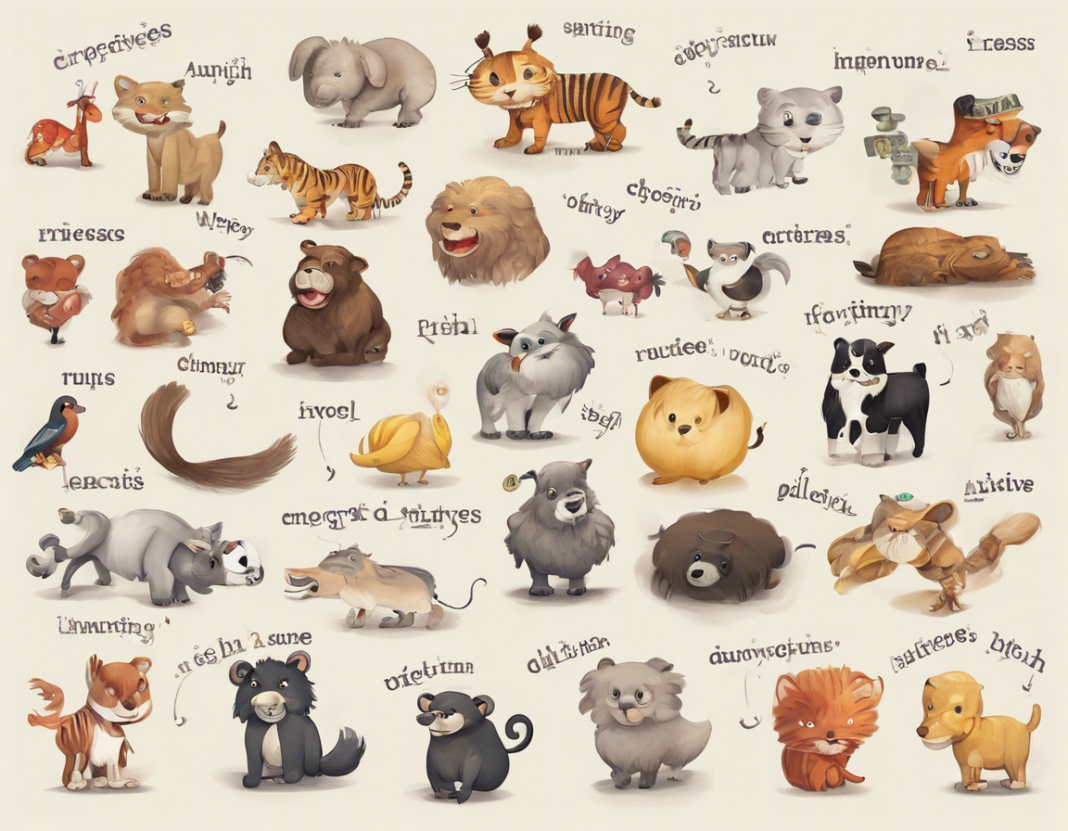Adjectives are a vital component of language that help to describe and add detail to nouns and pronouns. They enable us to paint vivid pictures with our words, creating imagery and setting the tone in our communication. Adjectives that start with the letter “A” offer a diverse range of characteristics and qualities that can enhance your writing and enrich your vocabulary. This comprehensive list of adjectives that start with A will provide you with a wide array of options to choose from, whether you are looking to add flair to your writing or expand your descriptive repertoire.
Awe-Inspiring Adjectives
1. Astounding
- Definition: Surprisingly impressive or notable.
- Example: The view from the mountaintop was truly astounding.
2. Ambitious
- Definition: Having a strong desire and determination to succeed.
- Example: She had an ambitious goal of running a marathon within a year.
3. Adorable
- Definition: Inspiring great affection or delight.
- Example: The adorable puppy wagged its tail happily.
4. Astonishing
- Definition: Fill with sudden and overwhelming surprise or wonder.
- Example: Their astonishing performance left the audience in awe.
5. Authentic
- Definition: True to one’s own personality, spirit, or character.
- Example: The artist’s work was praised for its authentic representation of emotion.
6. Amiable
- Definition: Having a friendly and pleasant manner.
- Example: He was known for his amiable nature and willingness to help others.
7. Aesthetic
- Definition: Concerned with beauty or the appreciation of beauty.
- Example: The aesthetic appeal of the painting captivated all who viewed it.
8. Assertive
- Definition: Showing confidence and forcefulness in one’s actions.
- Example: She took on a more assertive role in the meeting and made her opinions heard.
9. Altruistic
- Definition: Showing a selfless concern for the well-being of others.
- Example: Her altruistic deeds in the community earned her widespread respect.
10. Animated
- Definition: Full of life, action, or spirit.
- Example: The children were animated with excitement as they played in the park.
A List of Additional Adjectives:
- Abundant
- Alluring
- Auspicious
- Audacious
- Angelic
- Aromatic
- Adventurous
- Artistic
- Analytical
- Absurd
- Adaptable
- Adept
- Aloof
- Ample
- Arguable
- Automatic
- Agile
- Apologetic
- Arid
- Astonished
- Austere
- Apprehensive
- Affectionate
- Acclaimed
- Adventurous
- Anxious
- Acrobatic
- Adventitious
- Ajar
- Amorphous
- Arid
- Aromatic
- Astute
- Audible
- Awkward
- Adroit
- Absorbing
- Ambiguous
- Abhorrent
- Alien
- Astonishing
- Acute
- Avant-Garde
These adjectives can be used in a multitude of contexts to elevate your writing, whether you are crafting a descriptive narrative, writing a persuasive piece, or simply looking to enhance your everyday language. By incorporating these adjectives that start with A into your vocabulary, you can add depth, nuance, and vividness to your expressions.
Frequently Asked Questions (FAQs)
1. What is the importance of using adjectives in writing?
Adjectives serve to describe and modify nouns or pronouns, adding detail, imagery, and specificity to your writing. They help create vivid pictures in the reader’s mind and evoke emotions.
2. How can I effectively incorporate adjectives into my writing?
Try to choose adjectives that are specific, evocative, and relevant to the context. Avoid overusing adjectives and strive for a balance between description and brevity.
3. Are there any rules for using adjectives in English grammar?
Adjectives are usually placed before the noun they modify in English. Additionally, adjectives must agree in number and gender with the nouns they describe.
4. Can adjectives be used to compare things or qualities?
Yes, adjectives can be used in comparative and superlative forms to compare two or more things. For example, “bigger,” “more beautiful,” “the most delicious.”
5. How can I expand my vocabulary with adjectives?
To expand your vocabulary with adjectives, consider reading extensively, keeping a word journal, and actively looking up new words and their meanings. Practice using these words in sentences to improve retention.
6. How do I know which adjective to use in a sentence?
Consider the specific quality or characteristic you want to convey and choose an adjective that accurately describes it. Pay attention to the nuances of different adjectives to select the most fitting one.
7. Can adjectives be used in combination with one another?
Yes, adjectives can be used in combination to provide a more detailed description of a noun. For example, “The cozy, inviting room.”
8. Are there any exercises to practice using adjectives effectively?
Try writing descriptive paragraphs or stories where you consciously focus on using a variety of adjectives. You can also play word association games or participate in creative writing prompts to enhance your adjective usage skills.
9. How can I differentiate between adjectives and adverbs?
Adjectives modify nouns or pronouns, while adverbs modify verbs, adjectives, or other adverbs. Adjectives answer the questions “What kind?” “Which one?” or “How many?” while adverbs answer “How?” “When?” “Where?” “To what extent?” for verbs.
10. What is the role of adjectives in creating vivid imagery in writing?
Adjectives add detail and color to descriptions, evoking sensory experiences and allowing readers to visualize scenes and characters more vividly. They contribute to setting the tone and atmosphere of a piece of writing.

